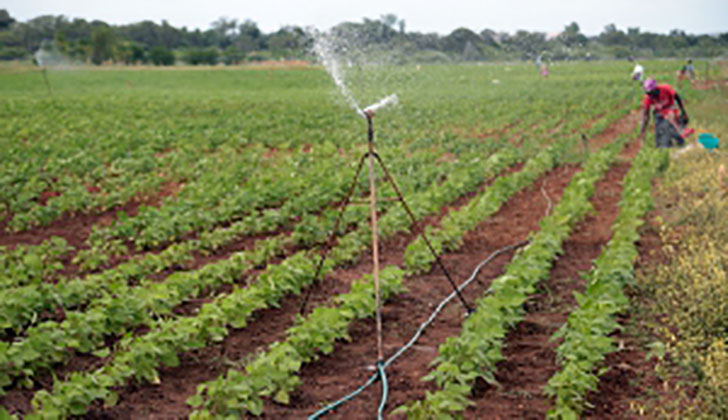by Elijah Chihota
The Zimbabwean economy is anchored on agriculture and mining which brings in the much needed foreign currency in order to revive industries, push production up and improve the people’s livelihoods. This and the achievement of a middle income economy by 2030 summarizes the vision that President Emmerson Mnangagwa has for Zimbabwe. The President can effectively turn around the economy, if our citizenry are willing to render him with the necessary support.
Agriculture puts Zimbabwe on the economic pedestal as it ensures that the citizens are fed and still remain with enough surplus for export. The introduction of the Command Agriculture programme in 2016, which was being supervised by President Mnangagwa during his tenure as the Vice President, saw the country recording a surplus in maize grain thereby boosting food security at household level as well as reviving the strategic grain reserves. Given such success, the President has the capabilities of steering the economy out of the waters in which it is marooned.
Tobacco which is one of the major foreign currency earners has seen upward production levels. During the 2017/18 season, farmers sold a cumulative 252 498 017 kilogrammes as of 21 September 2018 attracting an average price of US$2.92 per kilogramme. This was the highest figure in the history of tobacco growing in Zimbabwe beating a record of 237 million kilogrammes which had been set by former white farmers in 2000. For the 2018/19 tobacco growing season, 124 000 farmers have registered to date with the Tobacco Industry Marketing Board (TIMB) to grow the golden leaf up from the 84 000 in the previous season which indicates a 35.7 percent increase in grower numbers.
In mining only diamond and platinum are still covered by the Indigenisation Act with the rest having been removed from the Act under which Government insisted on the 51/49 shareholding threshold in favour of Zimbabweans. Investors in the mining sector now have the confidence that their investment would be secure unlike under the old Indigenisation Act which compelled them to cede a 51 percent stake to locals. This will attract high level investments which, in turn, are set to stimulate economic growth.
Above all, small scale miners are now officially recognised at law with prospects of receiving mining equipment from Government to boost their operations especially for gold. This is being funded under the $460 000 Mining Industry Loan Fund which would be used to buy equipment for the miners. To this end miners have so far delivered 20 tonnes of gold to the Fidelity Printers and Refiners against a yearly target of 30 tonnes. Small scale miners have been making significant contribution to total gold output. Since 2014, their produce rose from 3,727kg to 13 176kg in 2017.
In a brotherly and African Statesman stance, Rwandese President and African Union (AU) Chairperson, Paul Kagame while addressing the 73rd session of United Nations General Assembly (UNGA) summit pleaded Zimbabwe’s case when he said “In Zimbabwe as well, the next stages on the county’s path of progress warrant steady encouragement from the international community” . Such an endorsement will definitely work in President Mnangagwa’s favour as he steers the economy to a safe ground.
Under the Zimbabwe Is Open for Business investment drive, President Mnangagwa told the UNGA summit that “Zimbabwe is open for business and we are presently undertaking a raft of economic and political reforms to ensure an environment that facilitates inclusive and sustained economic growth. We have put in place institutions and instruments that maximize land utilization and increase agriculture productivity. Equally, strategies are in place in the various sectors of our economy, to enable my country to enter the global value chains. The development and modernization of our roads, railways, airports, energy and ICT infrastructure is being accelerated in line with our regional and continental quest for enhanced connectivity and integrated infrastructure”.
International financial institutions are an important cog in Zimbabwe’s economic turnaround wheels as they facilitate the injection of the much needed fresh capital for industrial production. In this regard, World Bank Vice President for Africa, Mr Hafez Ghanem said that he was supportive of President Mnangagwa's agenda regarding cooperation with international lenders. He said that the World Bank would support Zimbabwe's economic recovery and international re-engagement efforts.
The series of meetings which President Mnangagwa held in New York City in the United States on the sidelines of the 73rd session of UNGA work to buttress his broader vision of reviving the economy as he rubbed shoulders with the financial giants of the world.
Given his potential, capability and vision and the amount of work that he has put into laying the foundation for economic revival, Zimbabwe is set for exciting times and a great future. All that the people of Zimbabwe need to do is to support him and exercise patience as the results will not be achieved overnight.




